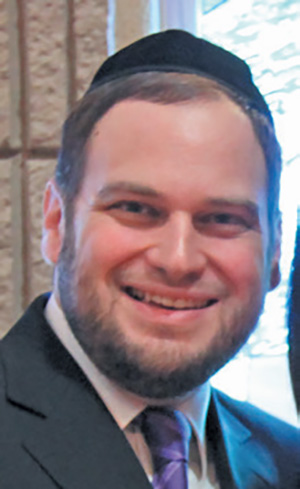
David was known as a charitable, respected and active member of his community. He was out of the house a number of nights each week attending meetings. One night it was the shul, the next it was the school, and on another night he would visit the elderly in the local nursing home. When he was finishing dinner one night, his phone rang and he was asked to meet with a person who had come from Israel in need of tzedaka. After asking the person on the phone if he could meet with him the following day, the person on the line responded that the individual was leaving that night. Devorah, David’s wife, turned to him and said that she didn’t want him going out. He had not been home all week and had not spent time with his family. “But Chani is waiting for you to tell her a story in bed; I told her that you would be home tonight,” Devorah said. David looked at her and asked why she had put him in that position. “Why would you make me the one to disappoint her? You tell her a story; you should never have told her that I was going to be home in the first place.”
Devorah then responded that David was out of touch with his priorities and that he was making a real mistake. Their hostile interaction escalated as a pattern for months as Devorah and David became very distant from each other emotionally. Although the family functioned day to day, the negativity that was present with the parents began to seriously impact the children. David saw Devorah as picking on him and creating problems for his relationship with the children. Devorah would continue to tell him that he lacked boundaries and that the entire family suffered because of it. David and Devorah became so reactive to each other that they were no longer able to speak in a somewhat respectful manner to each other. Shouting matches became a regular staple of the household, and the relationship as well as the family was in crisis. Only when they got professional help did David realize that his wife was not trying to be critical of him, but actually cared about his ability to function. He started to understand that his lack of boundaries caused him to be so overwhelmed that their relationship was in serious jeopardy.
There are times in life when people who care about us try to remind us of the need for boundaries. These reminders can be met with skepticism and even anger. We become defensive and feel that we are being criticized or picked on. It is worthwhile for us to pause at such a moment and honestly contemplate the motives of the individual approaching us.
A lack of boundaries often breeds resentment and leads to a chaotic lifestyle. A boundaryless life can easily become a very lonely one, where we can become obsessed with gaining the approval of others to the extent that we fail to recognize the costs associated with such a pursuit. We may end up blaming the wrong people for our hectic and demanding lifestyle. This in turn can have serious consequences for us.
In Parshat Bamidbar the Torah tells us that the tribe of Levi was charged with guarding the Mishkan and its vessels “because” of the Bnei Yisrael. Rav Shlomo Kluger, zt”l, questioned the use of the word “because” found in the pasuk. Rav Kluger explained that Hashem’s concern was not that something would happen to the Mishkan, but that the wrong people would end up going into the Mishkan. The role of Shevet Levi was to protect the sanctity of the Mishkan by ensuring that only those permitted to enter certain areas were able to do so, and that the “outsider” would not die from mistakenly making the wrong turn. Sometimes in life we may become frustrated and even angry at people who may be trying to look out for us. While Shevet Levi had total control of the Mishkan, they did so not for their own benefit but for our own benefit, namely our safety. It was this boundary that saved many from perishing. Just as the Mishkan needed boundaries and an entire tribe dedicated to ensuring the implementation of those boundaries, we too need boundaries in our lives and must trust our closest confidants to help ensure our safety.
By Rabbi Eliezer Zwickler
Rabbi Eliezer Zwickler is rabbi of Congregation AABJ&D in West Orange, New Jersey, and is a licensed clinical social worker in private practice. Rabbi Zwickler can be reached at ezwickler@gmail.com.









